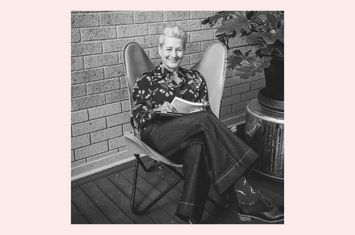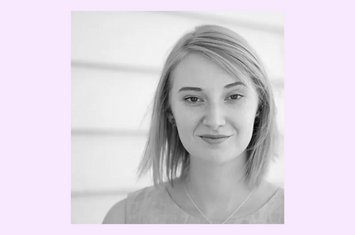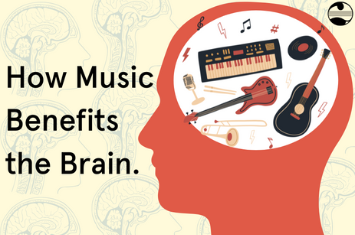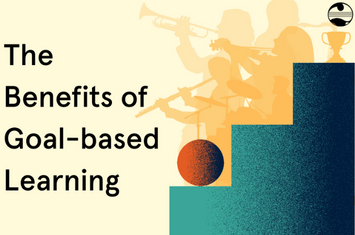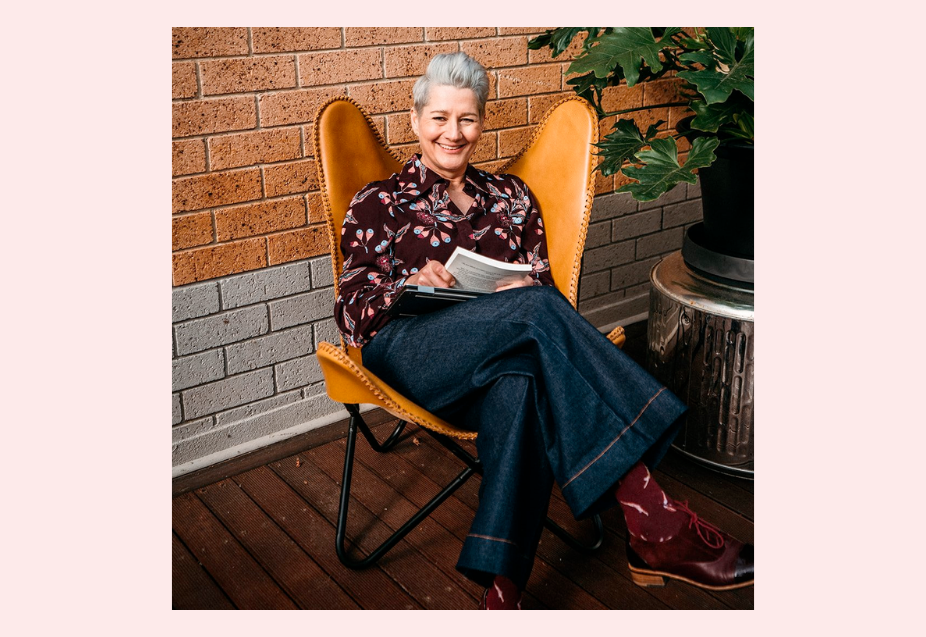
Susan Eldridge's life philosophy and experience is so rich and diverse that this introduction does not do her justice.
in fact, click here to find out more
Self-proclaimed "failed musician" turned innovative entrepreneur, mentor, professional horn player, Associate Lecturer at the University of Melbourne, author, founder of a multitude of projects (including IgniteLab and the Notable Values podcast), mum and revolutionary in the music education sector. In her current role as Senior Development Manager Musica Viva, Susan stopped by for a chat with AMEB.
Key themes: re-engaging with music, practising self-care and burnout, talking to parents, benefits of music for education, crafting a problem statement, returning to live performance, resources and links
Susan, your work regarding classical music focuses on preventing musicians from being detached from the world in the isolation of the practice room and the toxicity that can occur when striving for perfection. Coming out of a pandemic — and enforced isolation — how do music teachers and learners re-engage and foster a love of music after isolation or burnout?
For me, the principle is always — what is it for?
Music is for people — that's the fundamental thing — music is the glue that binds us to other people. For many of us, music is also the glue that keeps our inner life together and a way of helping us process feelings and make sense of the world. So, I think just asking— whether you're an educator or a thirteen-year-old student — what is the purpose and function of music in your life?
Attempting to retract back to the way we used to be and the purpose of it is flawed thinking. Instead, we should consider what music is for and be okay that things might have changed. If you've lost the love of it, it's okay to do something else. If that's actually what you've realised, after the pandemic, you really have lost your love of music, and other things are more important to you, or you're struggling to find something. It's okay to do something else for a while rather than struggle to find joy.
There's a lot of shame and assumptions based on notions of success with music and the kinds of music performance. We need to get rid of that idea and say, quite proudly, "I've trained in music, and I really loved it, but I've changed, or the world has changed."
Do you think part of the current burnout is from trying to hold onto life before the pandemic - instead of focusing on the present?
Yes, and it comes down to a sense of control. We've come from a teaching model historically very teacher-led (teachers in control). Now, we're moving to an understanding that good pedagogy isn't teacher-led. Instead, teachers are asking students questions, and we have much less control. But that's actually what good teaching looks like.
So, what if we're in this funny phase of music education of people moving much more to teaching inquiry-led learning, which takes the control away from the teacher being the expert? What is my purpose now? If I'm not the holder of the knowledge? It is a really uncomfortable place to be, especially if you've got a teaching practice that's really been about you having all the answers.
Secondly, self-care doesn't exist in music education in preparation for a professional career and whatever that's going to look like. Simply, most music practitioners, professionals and even teachers don't know how to do self-care. Before the pandemic, we were doing way too much. And then that all went away, and we were all left with - what do we do now?
Now that we're back, we've suddenly gone back to how things used to be, plus more! Like, thirty per cent more, to make up for the time and work we lost, and we don't know how to look after ourselves. We don't have the skill to do that. It's not seen as an acceptable part of being a professional. Self-care. It is in other disciplines like elite athletes, dancers, actors, maybe a little in opera. But the idea that 'I'm a precious object and can only shine and be my best artist when I am well nurtured' comes with the understanding of what I need and the mentality that I'm investing in myself. And that doesn't exist culturally in music. And we often feel guilty if it does. That's probably going to mean saying no to things and disappointing people. And that's another thing we're not well prepared to do in the music profession: have difficult conversations.
What's your advice to teachers on having difficult conversations with parents who want their children to stop extracurricular activities and focus on their education instead? How can teachers demonstrate that balance you're talking about and convey the benefits of music, especially in the education sector?
Firstly, teachers need to get a little evidence, and there's plenty of this about what good study looks like. Understanding what good self-directed learning looks like because it's not every hour of the day in front of a book, right? It's about having high-impact learning strategies. There's lots and lots of research about this. So firstly, being able to have a conversation with parents about putting the hours in, but getting rid of music because they [the children] need all the hours to study does not equal good results.
More than anything, particularly in the senior years of school, students need a way to manage their emotions. Music is such a brilliant way of processing and feeling emotion. We feel, you know, we're human beings. It's a beautiful addition to all of the complex academic work. The benefits help them stay connected because, for some kids, the school music community is their community, not the kids in their class. It enriches the school experience by exposing them to a wide range of humans with shared interests.
It's a complete fallacy that there's only enough time to study. A well-mapped plan: being well slept, well fed, having bodies that move and connect to the feelings in their body. That's the stuff that drives good results. Not simply, every hour of the day. And I'm speaking as the parent - I have an 18-year-old who just started Uni this year and a 16-year-old who's in year 11.
We've taken this model with our kids, with music enriching their wellbeing. My eldest son is studying math and physics at university, and he's making lots of music now and did tonnes of music in years eleven and twelve. It helped him cope with the stress of exams and was something he could go and do a little bit of when he needed to take a break. As a parent, I can speak first-hand about the benefit of music.
I enjoyed your practice of identifying your Problem Statement to help navigate where you are in life. Can you explain this concept?
A problem is when musicians or music teachers get into a bit of strife because they haven't quite figured out what they do (why they do it and for whom they do it?).
They got into the trap of "I studied music, and I became a teacher" without much thought. So, the Problem Statement is there to help people be service-oriented and clear about who they seek to serve through their work.
The Problem Statement has three parts:
1. Who is the work for?
2. Why do they need it?
3. What happens on the other side?
My Problem Statement is:
I'm Susan Eldridge, and I mainly support musicians (but also creative people of many different types) who understand that suffering is not necessary so that they can find their own path as artistic and creative people in the world.
What is the thing I'm trying to solve, who has that problem and what sits on the other side of the work we could do together? That's really my problem statement. Fundamentally around helping musicians to understand that suffering isn't necessary to be a musician. Which is not what they're told is possible or had role modelled by those who've come before.
As Senior Development Manager Musica Viva, how are you feeling about live music performances returning to life and seeing students re-engage with music?
I just can't tell you what it is like to sit and watch, I mean, anybody make music, particularly school students. Seeing the joy, the sheer joy, of young people making music together is amazing!
Seeing young people doing stuff together - not on their phone or an iPad or laptop. They're sitting there with a sheet of dots in front of them and having the best time. They are living their best life through connection, and the joy is felt right across the skill range. It's such a gift to see that happening, and I am so grateful to all their music teachers. Music teachers are part psychologists, part parents and part teachers. It's such a complex role. So many teachers are so invested in what music can do for others that they're giving so much of themselves to make this happen.
Thank you so much for taking the time to have a chat. We really appreciate it.
Thank you so much to AMEB for everything that it does. You provide such an important opportunity for students to progress their learning through so many different pathways, and it's really appreciated.
RESOURCES
On burnout:
- Brené Brown with Emily Nagoski & Amelia Nagoski on Burnout and How to Complete the Stress Cycle - Unlocking us with Brené Brown [Podcast]
- Burnout book by Emily Nagoski PhD and Amelia Nagoski MDA
On music performance and human connection:
- Dialogue by music with Bud Beyer, Professor Emeritus in Theatre, Northwestern University
On finding direction in life:
- How to discover your "why" in difficult times by Simon Sinek [Ted Talk]

